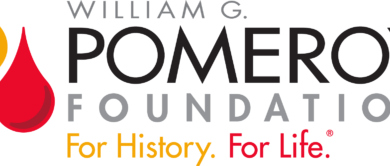GTSC announces results of holiday impaired driving enforcement campaign

According to the Governor’s Traffic Safety Committee (GTSC), law enforcement agencies throughout the state issued 2,077 tickets for impaired driving during the STOP-DWI “Drive Sober or Get Pulled Over” campaign, which ran from December 17, 2021, through January 1, 2022. During that time, officers also issued 62,303 tickets for other vehicle and traffic law violations, such as speeding and distracted driving.
“Safety is a top priority in New York, and I thank all law enforcement for their commitment to getting reckless drivers off our roads,” said Department of Motor Vehicles Commissioner and GTSC Chair Mark J.F. Schroeder. “Impaired driving is 100 percent preventable and the results show you will be caught and held accountable.”
The STOP-DWI “Drive Sober or Get Pulled Over” campaign, supported by the Governor’s Traffic Safety Committee (GTSC), occurs multiple times throughout the year to reduce alcohol and other drug-related traffic crashes.
New York State Police Superintendent Kevin P. Bruen said, “When someone makes the wrong choice behind the wheel, the consequences can be deadly. We encourage drivers to make safe driving practices their priority. Our Troopers are always vigilant in keeping impaired drivers off the road to prevent tragedies. We have zero tolerance for dangerous and distracted drivers, and we remain committed to keeping our roadways safe for all.”
The STOP-DWI program is a major component of New York’s efforts to combat impaired driving. STOP-DWI stands for “Special Traffic Options Program for Driving While Intoxicated.” The state’s STOP-DWI program is the nation’s first and, to date, only self-sustaining impaired driving program. The program’s efforts are funded entirely from fines paid by convicted impaired drivers. Importantly, the program’s coordinators are comprised of diverse professional backgrounds, including law enforcement and non-law enforcement.
Under GTSC oversight, STOP-DWI was created to empower counties to coordinate local efforts to reduce alcohol and other drug-related traffic crashes. All 62 counties have opted to participate. Some examples of programs that STOP-DWI funds are: specially trained police units dedicated to DWI enforcement, hiring of special prosecutors and probation officers to handle the caseload, monitoring ignition interlock devices, supporting rehabilitation services, and developing public information and education campaigns tailored to communities within their respective regions. To learn more, visit http://www.stopdwi.org/.
In addition to STOP-DWI, the GTSC supports training for Drug Recognition Experts (DRE). DREs are specially trained officers utilized by law enforcement when a driver appears to be impaired, but police have ruled out alcohol as the cause or sole cause of impairment. A DRE receives extensive training that has been approved by the National Highway Traffic Safety Administration and the International Association of Chiefs of Police. The training allows officers to observe and document signs and indicators of impairment within each of seven drug categories including illicit and prescription drugs.
The GTSC also coordinates various traffic safety activities throughout the year and supports ongoing initiatives to improve pedestrian, motorcycle, and bicycle safety. The GTSC also sponsors critical training for law enforcement, provides resources for teen drivers and their parents, and promotes seatbelt use statewide.
New Yorkers struggling with an addiction, or whose loved ones are struggling, can find help by calling the state’s toll-free, 24-hour, seven-day-a-week HOPEline at 1-877-8-HOPENY (1-877-846-7369) or by texting HOPENY (Short Code 467369).
Available addiction treatment including crisis/detox, inpatient, community residence, or outpatient care can be found using the NYS OASAS Treatment Availability Dashboard at FindAddictionTreatment.ny.gov.
For more information about GTSC, visit https://trafficsafety.ny.gov/.
Provided information





